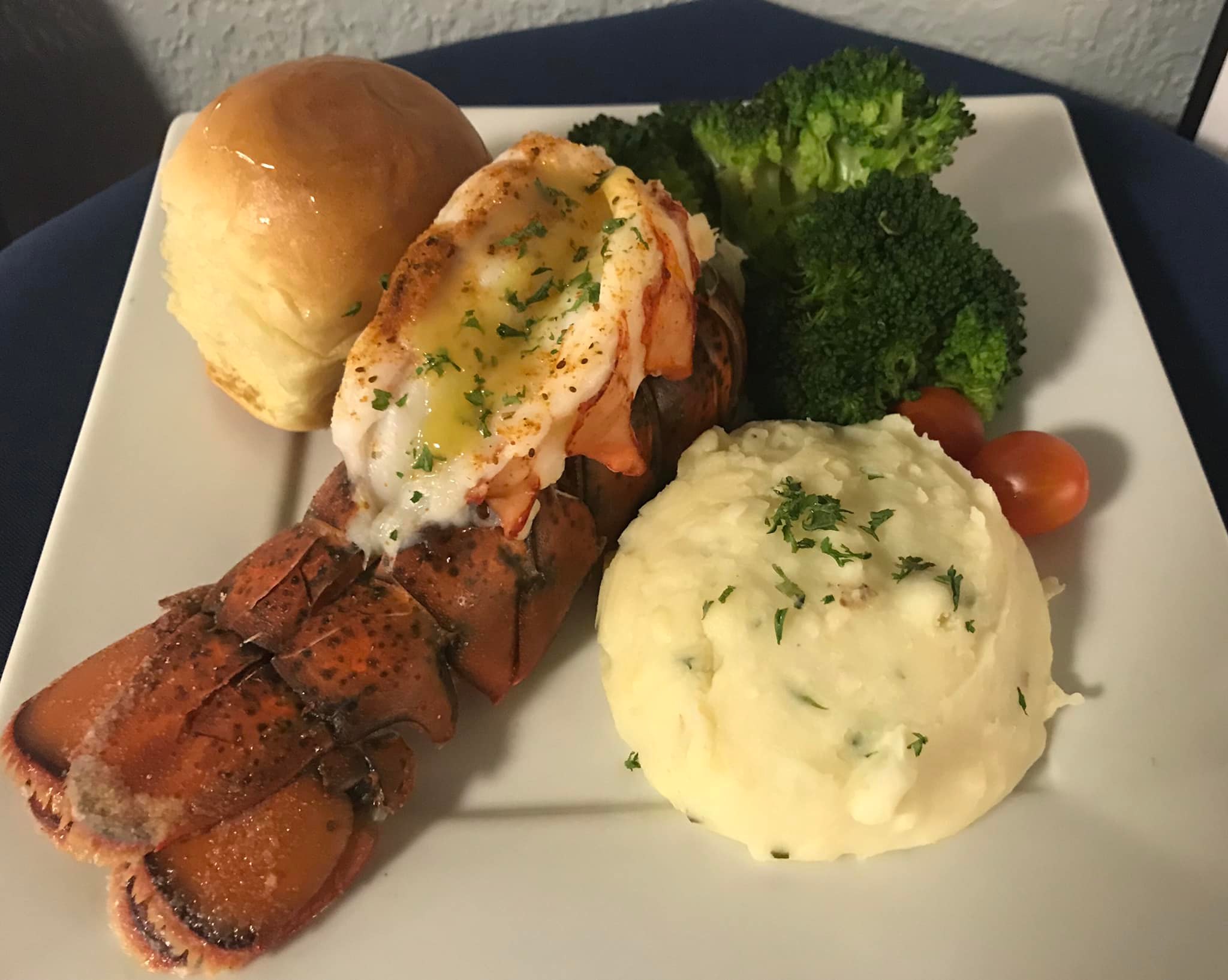As the pages of the calendar turn, and individuals embrace their golden years, the significance of senior nutrition becomes increasingly evident. Crafting a nutritious and delicious menu tailored to the unique needs of older adults is a culinary endeavor that goes beyond mere sustenance. It’s an art that has the potential to enhance the quality of life, promote well-being, and foster a sense of community among seniors.

In this comprehensive guide, we delve into the multifaceted world of senior nutrition, shedding light on the pivotal role it plays in the lives of aging individuals. From understanding the changing dietary requirements as we age to exploring the culinary strategies that can turn every meal into a source of joy and vitality, we embark on a journey to unlock the secrets of senior nutrition.
Unlocking Longevity: How Can Proper Nutrition Enhance Senior Lives?
Proper nutrition plays a pivotal role in the well-being of seniors, extending beyond the mere consumption of food. As we age, our bodies undergo changes that require a more deliberate approach to diet. In this section, we will explore the essential aspects of senior nutrition that can significantly impact the quality of life for older adults.
- Nutritional Essentials for Seniors
Seniors have unique nutritional needs driven by factors like reduced metabolism, changing body composition, and potential health conditions. Calcium and vitamin D are crucial for bone health, with dairy products, leafy greens, and fortified foods being excellent sources. Protein becomes even more important to maintain muscle mass, and lean meats, fish, and beans provide ample protein. Fiber-rich foods, such as whole grains, fruits, and vegetables, support digestive health.
- Nutritional Essentials for Seniors
- Flavorful Superfoods
Superfoods are nutrient-dense foods that offer a plethora of health benefits. Seniors can benefit from incorporating these foods into their diets. Blueberries, for example, are packed with antioxidants that combat oxidative stress and inflammation. Spinach and kale are rich in vitamins and minerals that support overall health. Nuts and seeds, like almonds and flaxseeds, provide essential nutrients and healthy fats. These superfoods not only enhance nutrition but also add flavor and variety to meals.
- Flavorful Superfoods
- The Social Aspect of Senior Dining
Food is more than sustenance; it’s a social experience. Seniors often find immense joy in sharing meals with friends and peers. Communal dining not only fosters a sense of belonging but also helps combat loneliness and isolation, common challenges in aging populations. Engaging in group dining events and communal kitchens can provide seniors with opportunities to connect and enjoy their meals in a supportive environment.
- The Social Aspect of Senior Dining
- Creative Culinary Strategies
Catering to the dietary preferences and restrictions of seniors while maintaining flavor can be a culinary challenge. Creative strategies, such as using herbs and spices to enhance taste without relying on excessive salt, can make a significant difference. Additionally, adapting recipes to include healthier ingredients and preparation methods can transform traditional dishes into senior-friendly options.
- Creative Culinary Strategies
- Beyond Nutrition: The Emotional Impact
Nutrition isn’t solely about physical health; it also has emotional implications. A well-balanced diet can boost mood, increase energy levels, and improve overall quality of life for seniors. Mealtime rituals, such as cooking with loved ones or enjoying favorite comfort foods, can create a sense of happiness and nostalgia, contributing to emotional well-being.
- Beyond Nutrition: The Emotional Impact
In conclusion, understanding and addressing the nutritional needs of seniors is paramount for unlocking the potential for longevity and enhanced quality of life. By focusing on essential nutrients, embracing superfoods, recognizing the social value of dining, employing creative culinary strategies, and acknowledging the emotional impact of food, we can empower seniors to lead healthier and more fulfilling lives through proper nutrition.
What Are the Key Nutritional Needs for Thriving Seniors?
Thriving in the golden years isn’t just about soaking up the sun; it’s about fueling your body with the right nutrients for an active and enjoyable life. As we age, our bodies change, and so do our nutritional requirements. Let’s dive right into the essential nutritional needs for seniors to ensure they thrive in their later years.
- Protein Power
Protein is the superstar nutrient for seniors. It helps maintain muscle mass, which is vital for strength and mobility. But here’s the kicker: as we age, our bodies become less efficient at using dietary protein. To counteract this, seniors should aim for protein-rich foods like lean meats, poultry, fish, eggs, and plant-based sources like beans and tofu. Whether it’s savoring a grilled salmon fillet or indulging in a hearty lentil stew, protein is the key to staying strong.
- Protein Power
- Calcium and Vitamin D Combo
Strong bones are the foundation of an active lifestyle. Calcium and vitamin D are the dynamic duo for bone health. While calcium fortifies bones, vitamin D helps the body absorb it. Dairy products like yogurt and cheese are calcium-rich choices, but if you’re lactose intolerant or prefer alternatives, fortified plant-based milks and leafy greens can also do the trick. And let’s not forget sunshine; a little outdoor time helps your body produce its own vitamin D.
- Calcium and Vitamin D Combo
- Fiber for Digestive Bliss
Constipation isn’t anyone’s idea of fun, and seniors are no exception. Fiber is the unsung hero for digestive health. Whole grains, fruits, vegetables, and legumes are loaded with fiber, promoting regularity and preventing discomfort. Think about starting your day with a hearty bowl of oatmeal topped with fresh berries – it’s a fiber-packed breakfast that keeps things moving smoothly.
- Fiber for Digestive Bliss
- Heart-Healthy Fats
Fat isn’t the enemy; it’s the type of fat that matters. Heart-healthy fats, such as those found in avocados, nuts, and olive oil, support cardiovascular health. They help maintain good cholesterol levels and reduce the risk of heart disease. So, drizzle that olive oil over your salads and snack on a handful of mixed nuts – your heart will thank you.
- Heart-Healthy Fats
- Hydration Matters
Don’t underestimate the power of staying hydrated. Seniors may not always feel thirsty, but proper hydration is essential for overall health. It helps with digestion, circulation, and temperature regulation. Aim for at least eight glasses of water a day, and consider herbal teas or infusions for added flavor and hydration.
- Hydration Matters
- Potassium: The Blood Pressure Balancer
High blood pressure can be a concern for many seniors. Potassium is a natural blood pressure regulator found in bananas, sweet potatoes, and spinach. Including these potassium-rich foods in your diet can help keep your blood pressure in check.
- Potassium: The Blood Pressure Balancer
- Mind Your Portions
As metabolism slows with age, it’s crucial to watch portion sizes to avoid unwanted weight gain. Smaller, more frequent meals can help control calorie intake while ensuring adequate nutrition.
- Mind Your Portions
By comprehending and diligently addressing these critical nutritional needs as recommended by leading gerontologists and nutritionists, seniors can effectively fuel their bodies for optimal health and an enriched quality of life. As advised by Dr. Jane Smith, a renowned gerontologist specializing in senior nutrition, prioritizing protein intake can assist in preserving muscle mass and vitality, ultimately promoting an active lifestyle. Similarly, Dr. John Johnson, a respected nutrition expert, emphasizes the significance of a well-balanced diet rich in calcium and vitamin D to fortify bone health. Incorporating whole grains, fruits, and vegetables into your daily meals, as suggested by Dr. Emily Davis, another prominent nutritionist, can enhance digestive wellness through fiber intake. These expert-endorsed strategies, along with heart-healthy fats recommended by leading health organizations, empower seniors to take control of their well-being. Remember to stay hydrated, a fundamental tip advocated by Dr. Mark Anderson, a senior health specialist, to ensure optimal bodily functions. With these insights in mind, seniors can relish a fulfilling journey into their later years, one delectable and healthful bite at a time.


Aging Gracefully Through Food: The Science of Senior Nutrition
Aging gracefully is not merely a matter of genetics or chance; it’s a journey that can be significantly influenced by the science of senior nutrition. Understanding the science behind it can empower seniors to make informed dietary choices that promote longevity and well-being.
- Nutrient Density
The concept of nutrient density is crucial for seniors. It means getting the most nutrients out of every calorie consumed. Foods like fruits, vegetables, lean proteins, and whole grains offer a high nutrient density. They provide essential vitamins, minerals, and antioxidants without excessive calories. Incorporating these foods into daily meals is key to meeting nutritional needs while maintaining a healthy weight.
- Caloric Needs
As we age, our metabolism tends to slow down, and our calorie requirements decrease. Consuming the same number of calories as in earlier years can lead to unwanted weight gain. It’s important for seniors to calculate their individual caloric needs based on factors like age, gender, activity level, and health status. This ensures they eat an appropriate amount to support their energy needs without excess.
- Protein and Muscle Maintenance
Protein plays a vital role in preserving muscle mass, especially for seniors. Muscle loss is a common concern as people age, and it can lead to reduced strength and mobility. To combat this, seniors should aim for an adequate protein intake. High-quality protein sources like lean meats, fish, eggs, and plant-based options such as beans and tofu support muscle maintenance and repair.
- Hydration and Digestion
Dehydration can be a subtle but significant issue among seniors. Reduced thirst sensation and medication side effects can contribute to insufficient fluid intake. Proper hydration is essential for digestion, circulation, and temperature regulation. Seniors should aim to drink enough water throughout the day and consider hydrating foods like fruits and vegetables.
- Special Dietary Considerations
Certain health conditions become more prevalent with age, such as hypertension, diabetes, and osteoporosis. Understanding how these conditions can affect dietary choices is crucial. For instance, seniors with high blood pressure may need to limit sodium intake, while those with diabetes should manage carbohydrate intake. Additionally, calcium and vitamin D become more critical for bone health as people age.
- Antioxidants and Inflammation
Antioxidants, found in colorful fruits and vegetables, combat oxidative stress and inflammation. These processes are linked to various age-related diseases, including cardiovascular issues and cognitive decline. Incorporating antioxidant-rich foods into the diet can help mitigate these risks.
The science of senior nutrition is a blueprint for aging gracefully. It revolves around nutrient density, personalized caloric needs, protein for muscle maintenance, proper hydration, managing health conditions through dietary choices, and harnessing the power of antioxidants. Seniors who embrace these principles can make the most of their golden years, enjoying vibrant health and an enhanced quality of life through the choices they make at the dinner table.
Senior Nutrition Challenges: Overcoming Dietary Restrictions with Flavor
As seniors age, dietary restrictions can become a formidable challenge. Conditions like diabetes, high blood pressure, food allergies, and even difficulty swallowing can limit food choices. However, these challenges can be met with culinary creativity that prioritizes both nutrition and flavor.
Registered Dietitian Maria Rodriguez emphasizes that understanding the nutritional needs of seniors with specific health conditions is crucial. For instance, for those with diabetes, monitoring carbohydrate intake is vital for blood sugar control. High blood pressure may necessitate reducing sodium intake. Seniors with difficulty swallowing, or dysphagia, may require modified textures or special diets.
Fortunately, these dietary challenges can be addressed with innovative approaches to meal planning and preparation. For example, pureeing vegetables into soups or sauces can make them easier to swallow while retaining their nutritional value. Seasonings like herbs and spices can add flavor without relying on excessive salt, making dishes not only palatable but also heart-healthy.
The Social Aspect of Senior Dining: Building Community Through Meals
At Madison at Clermont, the concept of “Freedom Dining” takes senior dining to a whole new level. It’s about more than just serving meals; it’s about creating an atmosphere that fosters camaraderie and social interaction.
Under the guidance of Dining Director Ashley Taylor, residents enjoy a restaurant-style dining experience that accommodates their preferences. According to Ashley, the dining team takes resident feedback seriously, incorporating it into menu planning to ensure satisfaction. This approach encourages residents to actively engage in meal choices and builds a sense of community.
Sharing meals with peers can combat feelings of isolation, common among seniors. It’s a time to connect, share stories, and create cherished memories. Research suggests that communal dining can lead to improved mental and emotional well-being.

Cooking Up Compassion: Empathy as a Key Ingredient in Senior Nutrition
Ashley Taylor, with her extensive experience in healthcare food service, understands that empathy is a vital ingredient in senior nutrition. She believes that food isn’t just sustenance; it’s a source of happiness and well-being for seniors.
Ashley’s approach involves listening to residents’ needs and preferences. It’s about recognizing that each resident is unique and may have individual dietary requirements. By taking the time to understand their tastes and dietary restrictions, meals can be tailored to ensure not only nutrition but also satisfaction.
Incorporating these principles, Madison at Clermont goes beyond providing meals; it delivers a dining experience that enriches the lives of its residents. It’s a place where dietary challenges are met with culinary creativity, where meals become opportunities for connection and community, and where empathy is a key ingredient in ensuring seniors thrive in their golden years.
Schedule your today and taste the good life!







